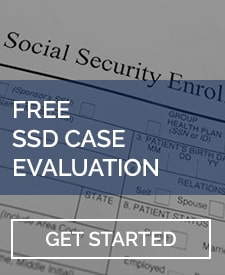Many applicants need help with Social Security Disability Insurance (SSDI) terminology. The SSDI application process itself is not only frustrating, stressful, and LONG, but also a lot of the terms you may come across are simply confusing. To aid in your understanding of key SSDI application process terms, the team of experienced SSDI lawyers at the LaBovick Law Group has put together the following list of SSDI terms and definitions.
SSDI Terms and Definitions
Administrative Law Judge
An administrative law judge is a judge appointed by the federal government. These kinds of judges preside over trials and adjudicate claims or disputes involving administrative law. Social Security is considered a type of administrative law. If your disability claim requires a hearing, you will be presenting your case before an administrative law judge.
Alleged Onset Date
The alleged onset date also called your disability date, is the date your disability began. Determining your disability date is a two-step process. First, you must show you suffer from a severe condition. Second, you must show that your condition is preventing you from working. It is not enough to simply have a diagnosis. You must also show that that diagnosis stopped you from working. For example, an individual may have stopped working in 2012 to take care of an ill family member. Then, in 2013, the individual was diagnosed with stage 4 lung cancer. The alleged onset date for that individual would be 2013 because that is when he/she was diagnosed with the severe condition and was precluded from working based upon that condition.
Date Last Insured
Your date last insured refers to the last day you are covered under the Social Security Disability Insurance (SSDI) program. SSDI is a federally run insurance program. Think of this similar to car insurance or homeowner’s insurance. You are covered under your car or homeowner’s insurance while you are paying the premium for that coverage. In this case, the “premium” is represented by the taxes you pay on your income into the Social Security program. To obtain coverage through the SSDI program, you must have paid taxes into the program for the past five out of ten years, or the past 20 out of 40 quarters. When proving you are disabled, you must show your disability began prior to your SSDI expiration. For example, if your date last insured is March 31, 2017, you must prove, using medical records, a disabling condition existed prior to that date. If your medical records do not start until 2018, you will not be found disabled based upon the fact that your condition did not begin during your period of SSDI coverage.
Filing Date
The filing date refers to the day you first applied for SSDI benefits, or the day your application was received by the Social Security Administration. This date is important for both the SSDI and Supplemental Security Income (SSI) programs in very different ways. For the SSDI program, this date is important because the Social Security Administration is able to pay retroactive benefits only 12 months prior to your filing date. For example, if you filed for benefits on January 1, 2019, and you are found disabled with an alleged disability date of January 1, 2016, the furthest back you would receive monetary benefits is January 1, 2018. In terms of SSI, there is no 12-month look-back period. Your filing date is simply the date you are first eligible to receive benefits. If your disability date is prior to the filing date, your benefits will start as of the filing date. If your alleged disability date is after the filing date, your benefits would start as of the alleged disability date.
Listings

Medical Expert
A medical expert is a doctor who has been enlisted to form an opinion regarding your claim. You may see the term medical expert used throughout the SSDI application process. In fact, the Social Security Administration can use a medical expert to review your file at any stage of the SSDI application process. At the hearing, stage is when you would actually hear the doctor testify; whereas, in the review process, you would simply see the doctor’s written report.
Medical-Vocational Guidelines
The medical-vocational guidelines are a list of rules the Social Security Administration (SSA) uses to evaluate cases for individuals aged 50 and older. The phrase commonly used here is “GRID Rules.” If you are over the age of 50, the SSA will determine whether your claim meets a GRID Rule. This is typically for cases with physical conditions or disorders that cause functional limitations. Psychiatric conditions alone are not evaluated under the GRID Rules.
Residual Functional Capacity
Residual functional capacity (RFC) is the most you can do in spite of your limitations. Your RFC is determined by considering both your physical and mental limitations and then placing functional restrictions upon them. The RFC is used to determine whether you are capable of performing your past work or any other work in the national economy.
Substantial Gainful Activity
Substantial gainful activity (SGA) is a monthly monetary amount the SSA uses as a threshold to determine whether you technically qualify for the SSDI program. If you are earning less than SGA per month, you will be able to apply for SSDI benefits. However, if you are earning over SGA, you will receive a technical denial of your SSDI application. SGA is determined by your gross monthly earnings, and the amount changes every year. In 2019, SGA is $1,220.
Vocational Expert

Help with Social Security Disability Insurance Application Process
Knowing certain terminology may help make the SSDI application process just a little bit easier to understand. However, the best way to file for SSDI benefits is with the assistance of experienced SSDI lawyers. At the LaBovick Law Group, we have a qualified team who can easily navigate you through the system. We provide free consultations and free online case evaluations. Our representation is based on a contingency fee. Meaning, we only get paid if we are able to secure your SSDI benefits. You pay nothing upfront to leverage the knowledge of our expert staff throughout the SSDI application process. So, rather than trying to piece all these terms and regulations together, the best thing you can do is to call the LaBovick Law Group today at (561) 623-3681.




